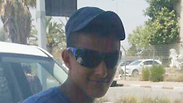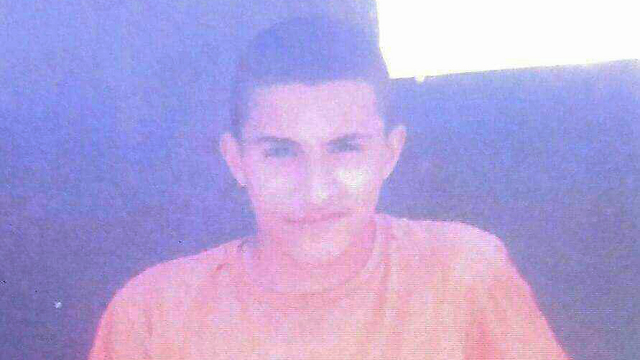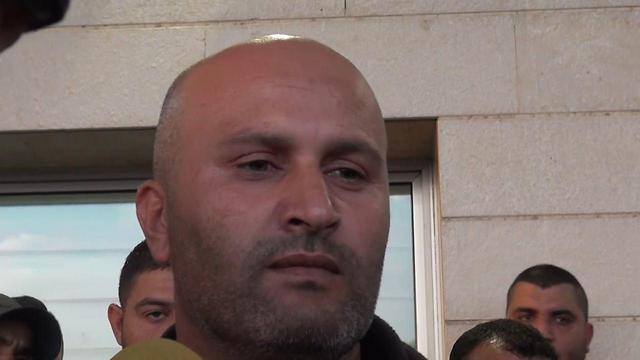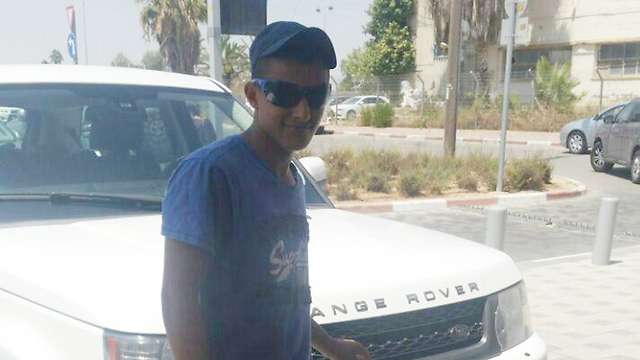

Conflicting accounts of Egyptian border shooting
While an initial IDF investigation of the shooting incident that cost the life of 15-year-old Nimer Abu Amar finds that Egyptian forces opened fire due to confusion, a family member who was present at the site says that the Egyptian forces were informed that they were working for Israel before deciding to open fire; neither the IDF nor the Israeli Defense Ministry has sent a representative to offer their respects to the family.
After 15-year-old Nimer Bassem Abu Amar from the Bedouin town of Lakiya was shot and killed by Egyptian Army forces on Tuesday, Israeli security forces are trying to understand who was responsible for the tragic event.
The family is laying the blame on the Israeli security forces for abandoning Abu Amar, while the Defense Ministry has been trying to understand why the boy was in an area prone to fire, whether anyone was overseeing the entry of people over the border, and whether there were any instructions in place.
A preliminary IDF investigation found that Abu Amar, who was there to do construction work along the border fence with other members of his family, was mistaken as being on the Egyptian infiltrator by Egyptian soldiers. Abu Amar died while on his way to Soroka Medical Center.
Another report, though, contradicted the IDF report's conclusions. Visiting the mourning tent, one of the other workers who was present that day said that the Egyptian Army was told they were working for the IDF before they opened fire. "The (Israeli) Army is usually with us while we work. We were weeding around the area, when suddenly, an Egyptian Army squad car drove up, and an officer asked, 'Who do you belong to?' We told him we belong to the Israeli side. The officer then said, 'You're not allowed to be here.'As we were making our way toward the exit, I heard the officer say, 'Start shooting now.' Nimer was the fourth from the front when he was injured. The Egyptian squad car immediately drove away. Within minutes, the army arrived and took care of him, and they also called a helicopter."
Apparently, the IDF soldiers realized that the Egyptian Army was firing due to mistakenly thinking Abu Amar had entered Egyptian territory and therefore held their fire. Instead, it extracted the boy, who was hit by a single bullet, and administered initial medical treatment. Both armies are currently cooperating to fully understand what led to the incident.
Though it did not send a representative to the family's mourning tent, the Defense Ministry referred to the incident in a statement, saying, "The Defense Ministry is conducting an investigation over the details of the shooting incident at the border fence with Egypt. A preliminary investigation found that Abu Amar arrived at the site with members of his family who worked for a deputy contractor, who hired them under the civil contractor. The Defense Ministry is continuing with the investigation until the general circumstances will be clarified."
The border fence was completed in the area where the shooting took place more than two years ago. The Defense Ministry's investigation is focusing on whether the workers were properly supervised, since former cases have shown that when it comes to providing workers with security along the Egyptian and Jordanian borders, both the IDF and Defense Ministry have shirked responsibility. Normally, though, workers have a military force on hand for their safety.
Abu Amar is the fourth Israeli civilian in the last few years to be killed in a security incident while working along an Israeli border. Contractors usually bring their workers to the area along the border on a daily basis for ongoing infrastructure work. The contractors who win the tender try to maximize their profitability by having their workers carry on even in potentially dangerous areas with insufficient security.
'No one came to show their respect'
There has yet to be a single IDF or Defense Ministry representative to visit the family's mourning tent in Lakiya. Salah Abu Amar, the boy's cousin, accused the security forces of racism. "If a Jewish boy would have been killed, it would be different. They abandoned the boy. Where's the army? Is there a shortage of soldiers in Israel? No one came to show their respect. You could come and say it was an accident, that can happen, we're all people."
The cousin continued to say, "Someone from the Defense Ministry called me to ask if it was okay to come. Why would it not be okay? Half of his family was in the army. Nimer's father was in the army and was commissioned for additional service. It's a disgrace. No one will bite them if they come. At a minimum, we expected them be at the hospital and sit with his father."
Abu Amar's uncle also criticized the IDF: "I blame the army. How could they let a little kid enter such a dangerous area? The Israeli soldiers abandoned the workers to their fate. Five family members could have died in that incident. There was neglect before and after his death. Either way, the life of an Arab citizen is apparently worth nothing."
Bassem, Abu Amar's father, came out strongly against the Israel Defense Forces: "I blame the Defense Ministry for the death of my son. There was no IDF security over the workers during the work itself. The soldiers left and only returned once they heard the gunshots, and even then they did not respond."
"Where's the prime minister?" He asked "Where's the defense minister? It's very simple: the army abandoned the guys working there."


















